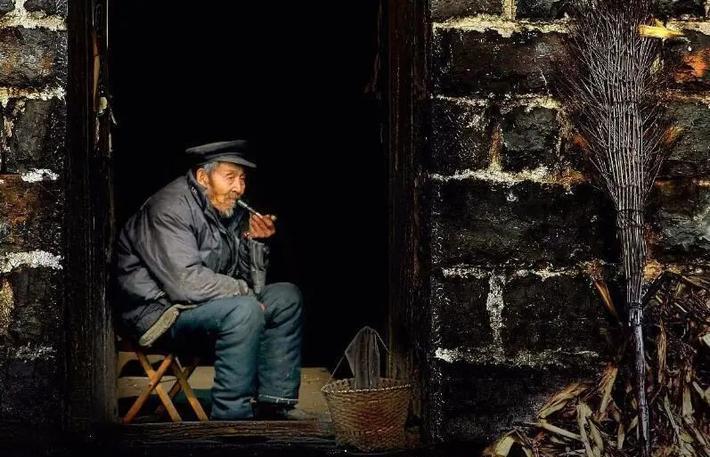
As the saying goes: "Two birds enter the house, there is no disaster and there is a disaster", is it really reasonable?
The first bird is the crow.
The old man in the countryside said that the crow's cry was like a hungry child crying in tears, and when he heard the crow cry, "I don't know which old man in the village is going to leave again" or "whose house is going to have an accident again."
In fact, crows, like magpies, are birds that like to sing, but I don't know when it has been a stand-in for disaster in the eyes of Chinese, even in Chinese literature. It was as if all the pejorative was given to the crow, and all the positive was given to the magpie.
For thousands of years, it has been believed that when a magpie barks, something good comes to the door, and when a crow crows, there is an unexpected disaster. Over time, the cries of magpies are relaxed and pleasant, and the cries of crows are full of fear.
People who have not read ancient books cannot imagine that the crow before the Tang Dynasty was actually an auspicious divine bird that could predict the future in the minds of human beings, so there is a historical legend that "the crow announces the good news, and there is a Zhou Xing";
In the proverb "the lamb kneels to milk, the crow feeds back", it has also been a symbol of "filial piety" and "etiquette" in traditional Confucian culture;
Li Mi's "Table of Feelings", which has the sentence "Wu Wu private feelings, willing to beg for eternal nourishment", "Wu Wu" is a crow.
Crows naturally like to move in groups, so there is also the term "rabble" in Chinese literature. This idiom is used to describe unorganized, unskilled gangs.
In fact, in nature, crows are the most common kind of birds, they are the best at fighting in groups, when I was a child in the countryside, I often saw them attacked by large birds such as magpies, echoing each other, attacking in groups, for the common good they disregard individual safety, which is the character that human beings, especially today's human beings, need to have.
Ma Zhiyuan, a famous literary scholar of the Yuan Dynasty, has a poem "Tianjing Sha Qiusi" with words: "Dead vines and old trees faint crows / Small bridges and flowing water people / Ancient road west wind thin horse / Sunset in the west / Broken intestines in the end of the world." ”
It describes withered vines, old trees, and a few crows at dusk, flapping their wings and flying down on bare branches. In the distance are chic bridges, babbling water, and quiet huts. And on the desolate ancient road, a haggard horse riding an equally haggard wanderer is hesitating in the west wind of a foreign land. As the sun sets, where is the wanderer's destination? Where is the wanderer's hometown?
Reading this, I think that those wandering wanderers will be sad, and the crows in them are the only animals full of sympathy for the wanderers, aren't they, otherwise how can their cries be so heart-wrenching?
The same "fate" as the crow is the owl.
"Don't be afraid of the night owls barking, just be afraid of the night owls laughing." The night owl here is the owl, the scientific name owl. In Chinese folklore, owls are often classified as ominous birds, because there are many places where stories of people who will die after hearing the owl's cry for a few days, so the owl is also known as the mourning bird, especially the owl's mournful cry in the night like a ghostly drift, it is indeed easy to think of doom and death.
In Europe, the association of owls and witches was once considered evil and ominous animals, so are owls really the ominous birds that people fear?
Today, when we drive on the highway, we can see many magpies picking up food in the roadway, and even the corpses of the same kind that have been run over by the speed! Magpies are called "hi" but still have not evolved to sublimate, escaping the species of omnivorous birds and birds.
Science has confirmed that people are dying, and the body emits a gas of carrionin, and owls are extremely sensitive to this gas and have a strong tendency. So that at night, smelling and coming, staying near the house of the dying patient and shouting, "the patient's mourning" was named "mourning star", which was really wronged!
The owl was dubbed the "evil bird" by the ancient Chinese, and in the West, especially in England, its identity also foreshadowed death and ominousness: in the medieval poet Chaucer's "Fowl Council", the owl was a metaphor for death.
In the famous British debate poem "The Owl and the Nightingale", the nightingale rebukes the owl: "When you scream and howl at night, people are scared of you to death." Whenever you open your mouth and sing, it is about some kind of human misfortune. ”
Interestingly, it is precisely because the owl is the image of the owl being feared and hated by ordinary people, Lu Xun took the Qifeng, laughed at the nickname given by his classmates as "Owl", and declared that his remarks were "owling".
In real life, Lu Xun's love for owls has obtained multi-layered malleability echoes in paintings and literary texts, thus constituting his unique owl complex. Its significance is not only to fully express Lu Xun's critical consciousness of 'seeing everything in the dark at ease', but also to strongly show Lu Xun's humorous spirit of making trouble with the darkness and the rebellious character of being able to fly and to fly.
I think it's time to change the stereotype of these two birds, what do you think?